KhrisDigital is supported by readers like yourself. We may earn a commission when you purchase through our links (at no extra cost to you).
You know what nobody tells you when you’re starting affiliate marketing?
The real money isn’t just in the hustle, it’s in the tools.
Back in 2018, I was scrambling. I’d signed up for a dozen affiliate programs, had zero clue how to drive traffic, and wasted hours on “free tools” that didn’t actually do anything.
It was messy. But I stuck with it. Learned the ropes. And over time? I made over six figures from affiliate marketing.
If you want to stop spinning your wheels and start seeing real results, you need the right affiliate marketing tools, especially if you’re a beginner.
This list is everything I wish I had when I started. I’ve included the best tools for affiliate marketing, from AI tools for affiliate marketing and SEO helpers to free software, WordPress plugins, email tools, and even the stuff super affiliates secretly use.
Let’s make your setup smarter, not harder.
1. Kadence WP Theme
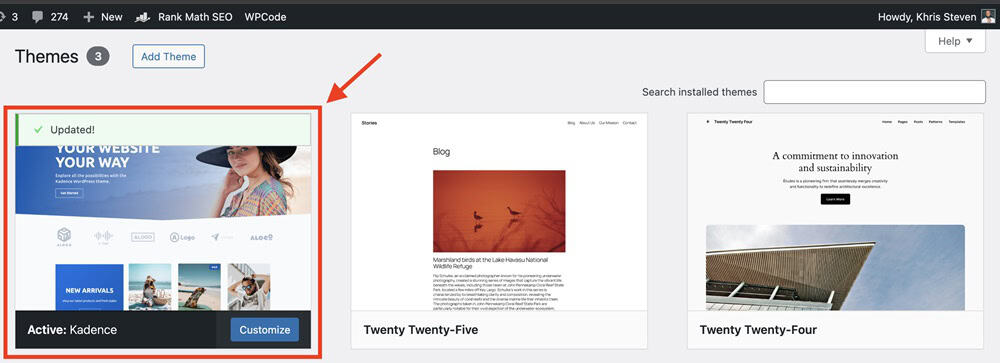
Switching to Kadence was hands-down one of the best decisions I made for my affiliate business.
Before that, I was wrestling with a bloated, slow theme that looked good on the outside but was a nightmare underneath.
Pages took forever to load, my Core Web Vitals were a mess, and don’t even get me started on how clunky everything felt. The moment I ported over to Kadence, everything changed.
Today, I run five of my profitable affiliate sites on Kadence. Why? Because it’s built for performance. No unnecessary bulk. No slow load times. Just clean code, fast speeds, and a drag-and-drop experience that actually makes sense.
I even ditched page builders like Elementor because Kadence works beautifully with the native Gutenberg block editor, so you can design high-converting pages without adding extra plugins or dragging your site speed into the mud.
If you care about ranking in Google (and you should), site speed is critical. I’ve tested four other high-end WordPress themes, and none of them came close in terms of performance, ease of use, or flexibility.
If you’re building niche sites, chasing traffic, and optimizing for conversions, this is your secret weapon.
2. ConvertBox
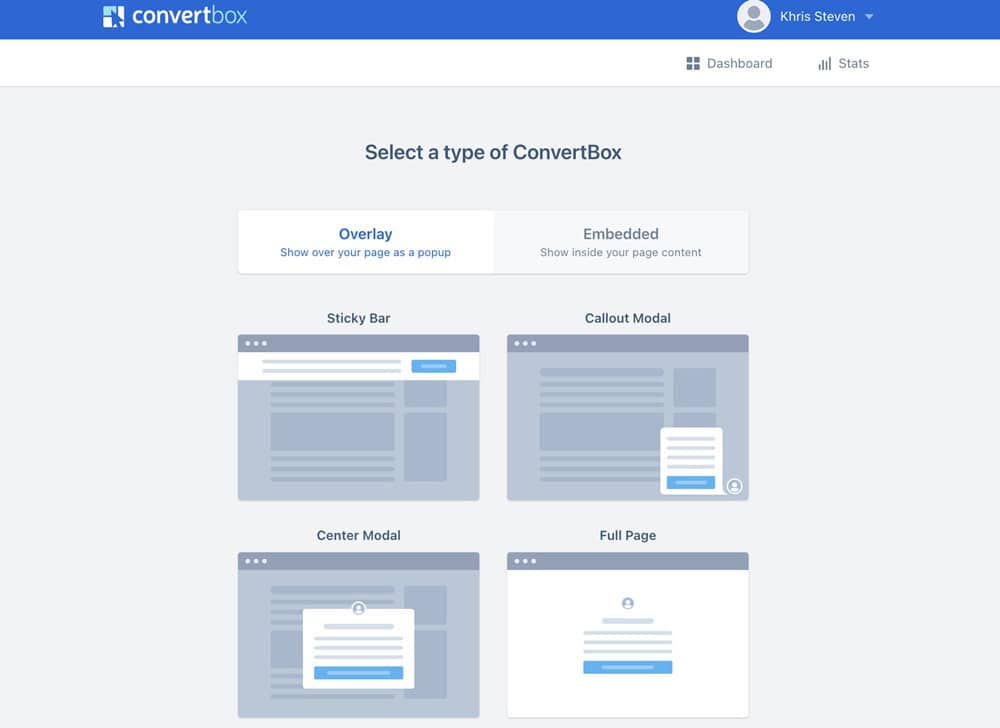
Most people who visit your site won’t click your affiliate links or join your list, unless you give them a reason to.
That’s where ConvertBox comes in.
This tool is more than a pop-up software; it’s a conversion machine. I added it to my affiliate sites, and honestly, I couldn’t believe how fast the results came in.
I made back my investment over a hundred times. No exaggeration.
With ConvertBox, you can create ultra-targeted opt-ins, sticky bars, and callouts that actually get clicked.
Whether you’re promoting a high-ticket product or offering a freebie to grow your list, ConvertBox helps you put the right message in front of the right person, at the right time.
As an affiliate marketer, that’s the game. Timing. Relevance. Urgency. ConvertBox nails all three.
The best part? It works with your existing setup. You don’t have to redesign your site or use a dozen plugins to start seeing action. Just plug it in, set up your first box, and start watching those clicks and sign-ups roll in.
Read my complete ConvertBox review here.
3. WPX & CloudWays (Premium Hosting That Powers Affiliate Growth)

Let’s talk hosting. It’s not the flashy part of affiliate marketing, but one of the most important.
I’ve used both WPX and CloudWays to host my affiliate sites, and they’ve been rock solid. We’re talking blazing fast load times, top-tier security, and support that actually helps when you’re in a crunch.
As an affiliate marketer, your site speed directly affects your rankings, clicks, and conversions. Google doesn’t care how pretty your site looks; if it loads slowly, you’re buried.
With WPX and CloudWays, I’ve consistently seen faster performance across all my sites. That means better SEO, lower bounce rates, and more affiliate commissions.
And when something breaks (because let’s be honest, it will), their support teams don’t leave you hanging. I’ve had live support fix issues in minutes, not hours or days.
Look, you can’t afford to host your affiliate sites on cheap, unreliable servers. WPX and CloudWays are the foundation your business runs on.
4. Canva

I don’t care how good your content is; if it looks boring, people will scroll right past it.
That’s why Canva is a must-have in my affiliate toolkit.
I’ve used it for everything: featured images that grab attention, infographics that explain complex stuff in seconds, thumbnails that actually get clicked, and even quick edits when I need to fix something fast.
It’s one of those tools that keeps on giving. Whether you’re designing for your blog, email, YouTube channel, or socials, Canva makes you look like a pro, even if you’re not one.
You don’t need Photoshop. You don’t need to hire a designer. With Canva, you can build clean, high-converting visuals that make your affiliate content stand out in a sea of sameness.
For real, it’s been one of the most valuable and versatile tools I’ve used in this business.
And the fact that you can get so much out of the free version? Wild.
5. Rank Math SEO
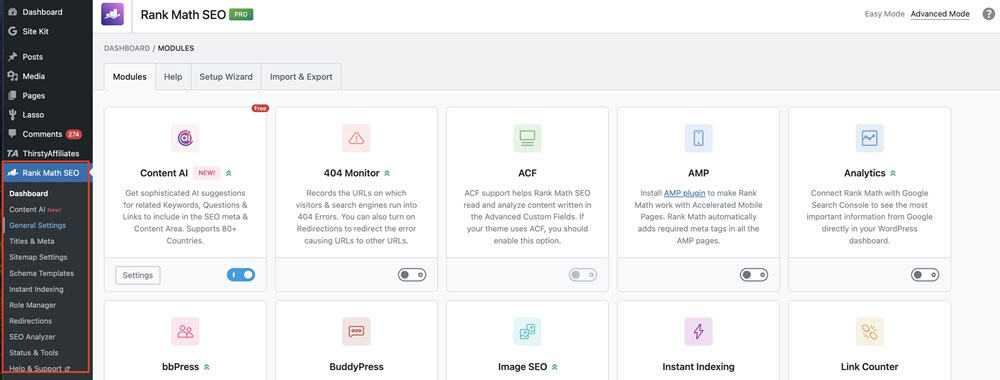
I used to be a loyal Yoast user until I met Rank Math.
Now? I wouldn’t touch Yoast with a ten-foot pole.
Switching to Rank Math was a no-brainer; it gave me way more functionality and saved me money in the process. It’s clean, intuitive, and packed with powerful features that make on-page SEO feel simple.
If you’re looking for a smart SEO plugin that helps your content rank, without drowning you in jargon, you’re in safe hands with Rank Math.
You can set your meta titles, create rich snippets, optimize your content, and manage redirects, all without needing five different plugins.
I use the Pro version because I like having access to the extras, but honestly?
You don’t need it unless you’re after the advanced stuff. The free version is more than enough to get serious results, especially if you’re starting out in affiliate marketing.
Read my complete Rank Math SEO review here.
6. GetResponse & AWeber

Ask any affiliate who’s been around a while, getting banned by your email provider is one of the fastest ways to wreck your business.
That’s why I always recommend GetResponse and AWeber.
They’re two of the best autoresponders for affiliate marketers, and they actually allow affiliate links (without treating you like a spammer-in-training).
Both platforms are beginner-friendly, packed with solid automation features, and most importantly, affiliate-safe.
You can build your list, create drip campaigns, send broadcasts, and track your results without constantly looking over your shoulder, waiting for a “Terms of Service” violation email.
I’ve used both at different points, and I trust them. They’re insurance policies for your email marketing.
If you’re serious about building a long-term affiliate business, your email list is gold. Get yourself an autoresponder that gets it, not one that’s ready to shut you down the moment you promote a product.
7. ChatGPT Pro
Writing, researching, brainstorming…
ChatGPT Pro is my behind-the-scenes powerhouse, and honestly, I don’t know how I worked without it.
I use it for everything: SEO research, affiliate blog outlines, writing product reviews, split-testing headlines, crafting email copy, building prompt systems, and even coming up with content angles when I’m stuck. It’s like having a full-time research assistant, copywriter, and editor in one tab.
Over the past year, I’ve built a ton of custom GPTs and AI agents to run nearly every part of my affiliate workflow. Life’s been a whole lot easier since.
In fact, I even built my own Custom GPT Human Writer, which now helps over 50 of my students create better content, faster.
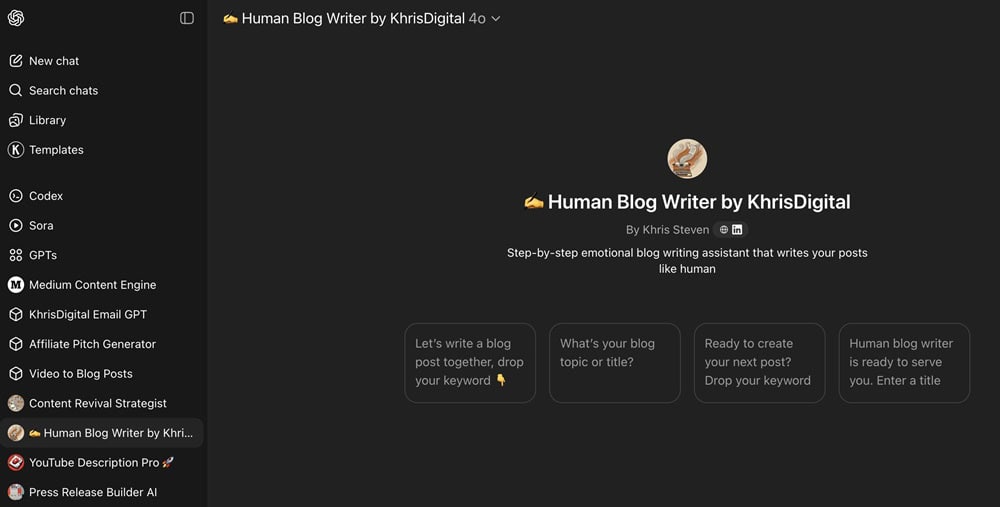
And yes, you get it free when you buy my course.
I’ve tried Claude. I’ve tested Gemini. They’re good. But for me? I’m still very much stuck on ChatGPT.
8. Grammarly
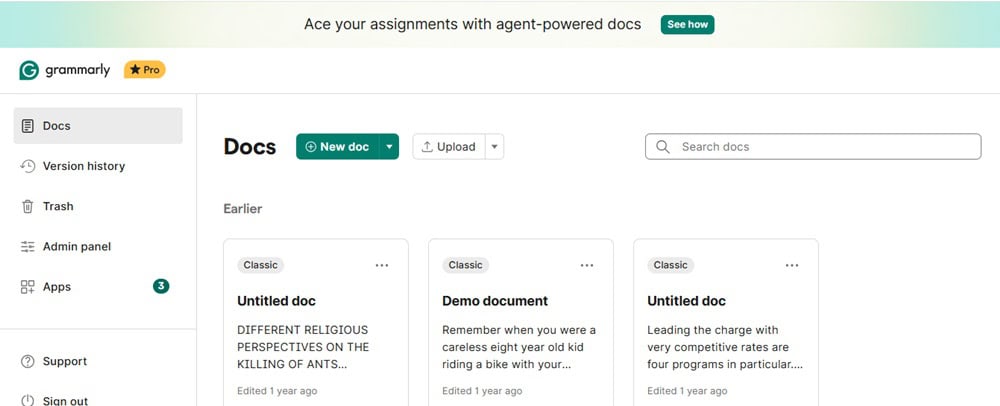
Look, content doesn’t have to be perfect. But it does need to be clear.
That’s why I’ve stuck with Grammarly for over 7 years now.
It’s one of those quiet tools that runs in the background but saves you from messy grammar, clunky sentences, and awkward typos that kill your credibility.
As an affiliate marketer, your words do the heavy lifting. Blog posts, landing pages, emails, product reviews — all of it needs to be easy to read and trust. Grammarly helps you get there faster, with way less editing.
You don’t need to sound like an English professor. It’s about making sure your message lands. And when your content reads clean, your links get more clicks.
I still write in my own voice. Grammarly just ensures it comes through smoothly.
9. LinkWhisper
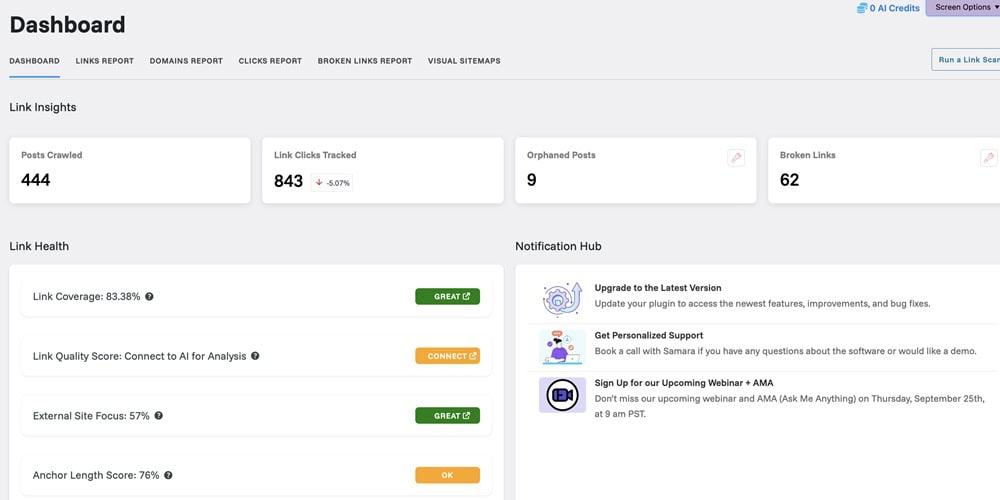
Want to rank higher on Google and keep readers glued to your site longer? Internal linking is your secret weapon, and LinkWhisper makes it stupid easy.
This tool changed the game for me.
Instead of manually digging through posts to find link opportunities (which takes forever), LinkWhisper shows you smart suggestions, broken links, orphaned pages, and even gives you a full bird’s-eye view of your internal link strategy, all from your dashboard.
If you’re serious about SEO, you can’t ignore internal links.
They help search engine bots crawl your site faster, spread authority across your pages, and boost your rankings. But they also help readers discover more of your content, increase time on site, and drive more clicks, including affiliate ones.
The best part? It’s fast. You can add dozens of links in minutes, not hours. And every one of those links is working behind the scenes to make your site stronger.
10. Ahrefs
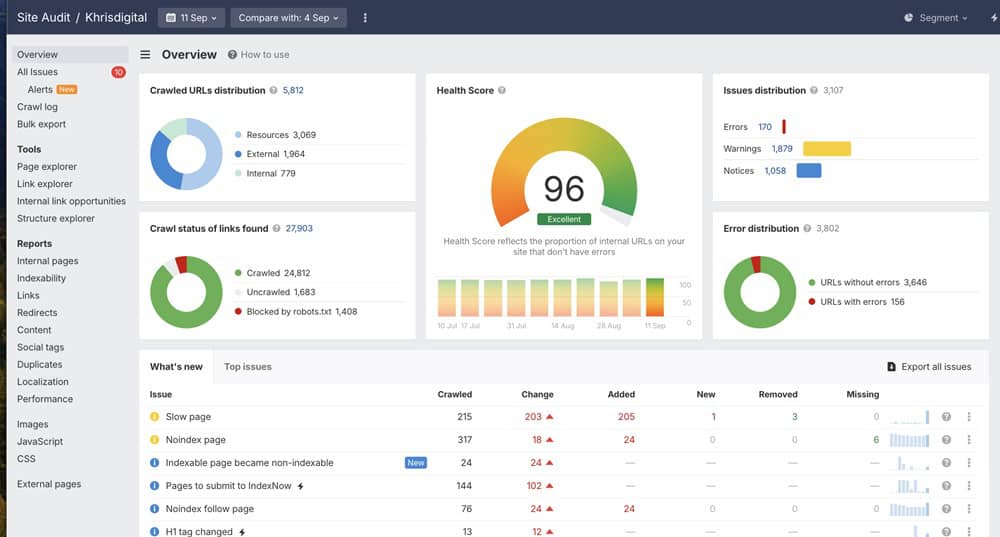
If you’ve ever sat there wondering “What keywords should I go after?” or “How are my competitors ranking so fast?” — Ahrefs is about to become your best friend.
This tool is keyword and competitor research on steroids.
You can spy on what’s working for other sites in your niche, steal their top-performing content ideas, find untapped keyword gaps, and build a smarter strategy, instead of throwing stuff at the wall and hoping it ranks.
But here’s what I really love: they also offer a free feature called Ahrefs Webmaster Tools.
It pings you whenever your site has technical SEO issues like broken links, indexing problems, or speed issues that could mess with your rankings.
Think of it like a built-in SEO watchdog, always keeping an eye on your site’s health.
I don’t use Ahrefs every day, but when I do? It’s like flipping on the lights in a dark room. You see exactly where to go next.
11. Google Search Console
Some tools are fancy. Others are just flat-out essential. Google Search Console is the latter.
It’s completely free, yet gives you direct access to how Google sees your site, and that’s pure gold for any affiliate marketer.
I use it regularly to track my traffic, find out which pages are getting clicks (and which aren’t), and spot new keyword opportunities I never even thought to target.
Need to audit your site? Fix indexing issues? Figure out why your rankings dropped? It’s all there, straight from the source. No guesswork, no fluff.
Google Search Console has helped me catch hidden issues, improve weak content, and double down on what’s already working. It’s like having a growth dashboard for your affiliate site, and it’s completely free.
12. NeuronWriter & SurferSEO

Let me keep it 100 with you.
I don’t use either of these tools regularly anymore, but they do have their place.
I was actually one of the early adopters of SurferSEO. Back then, I got too obsessed with optimization, trying to tick every keyword box and squeeze in phrases just to hit the perfect score. It started sucking the life out of my writing. So, I stepped away a couple of years ago.
That said, Surfer’s still a solid tool, especially now that they’ve added AI writing features. If you’re in a brutally competitive niche and you need every single post to be a laser-optimized SEO machine, it’s worth looking at.
The same goes for NeuronWriter. I grabbed it during a Black Friday deal last year. It’s clean, smart, and built for precision content optimization.
I haven’t used it much myself, but if you’re someone who wants your articles dialed in to the smallest on-page factor, it can definitely help.
Note: These aren’t essential for everyone. But if you’re battling for top spots in a tough niche, and you want to optimize like your life depends on it, they are the edge you need.
13. GoHighLevel
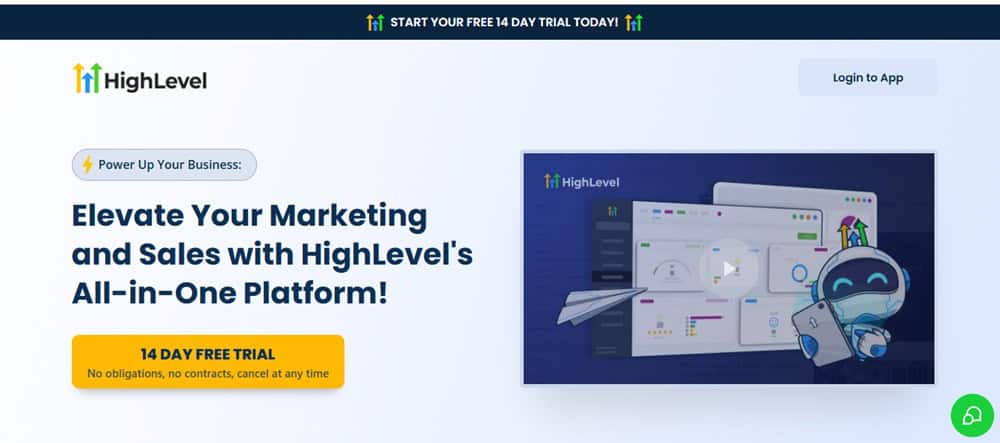
This one’s not just for affiliate marketers, but if you’re serious about growing, GoHighLevel is a total game-changer.
Funnels. Automation. Lead capture. Client management. Affiliate commissions. HighLevel does it all, and then some.
It’s hands-down my #1 all-in-one tool, and it powers so many moving parts of my business that I’ve honestly lost count.
Need to build an affiliate lead gen page? Easy. Want to create a squeeze page, set up automated follow-ups, or track commissions from your own programs? HighLevel’s got you covered.
I wouldn’t even call it “affiliate software” because it’s so much more than that. It’s like having ClickFunnels, ActiveCampaign, and Calendly rolled into one, but way more flexible and scalable.
If you’re building systems and want to automate your affiliate hustle, don’t sleep on HighLevel. It’s built for people who want to play bigger.
Read my complete GoHighLevel review here.
14. TinyPNG
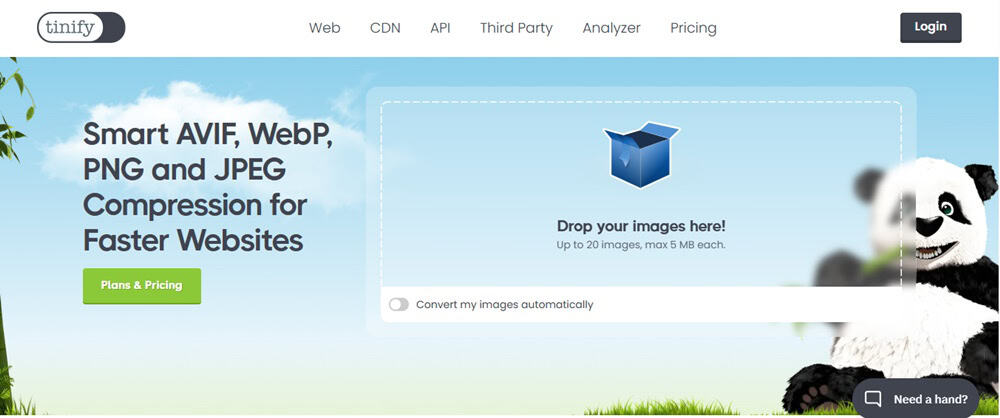
Speed matters, especially in affiliate marketing.
Large images are one of the sneakiest ways to slow your site down, hurt your SEO, and make visitors bounce. That’s why TinyPNG is a non-negotiable in my process.
I run every image through TinyPNG before uploading it to my media library. It compresses your images without killing the quality, so your site loads faster and still looks sharp.
Simple? Yes. But powerful. Because when your pages load quicker, people stay longer, and that means more time-on-page, more engagement, and more affiliate clicks.
15. ShortPixel Image Optimizer
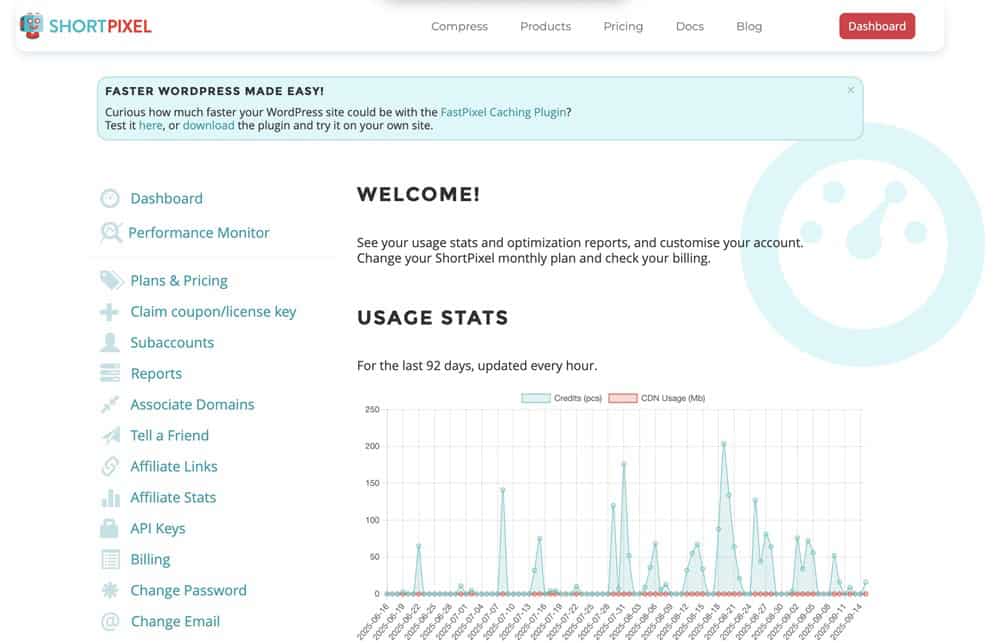
Some plugins come and go, but ShortPixel has been one of my longest-standing must-haves.
It’s been part of my WordPress stack for years, quietly doing the heavy lifting when it comes to image optimization. Every time I upload a new image, ShortPixel automatically compresses it without sacrificing quality. Keeping my site fast, lean, and SEO-friendly.
And when you’re running an affiliate site, speed is a ranking factor. Slower sites get penalized, and bulky images are often the culprit.
ShortPixel runs in the background, takes zero effort, and delivers significant results. It’s one of those rare plugins that earns its keep every single day.
16. ClickMagick
I’ll admit it, I’m not the type to obsess over every single click or conversion.
But if you are? ClickMagick will be your new best friend.
This tool is built for affiliate marketers who want to track everything — clicks, visits, sales, commissions, you name it. It’s meticulous. Precise. And perfect for those who want complete control over what’s working, what’s not, and where their traffic is actually coming from.
With ClickMagick, you can test links, track funnels, set up rotators, monitor your ROI down to the cent, and never be left guessing.
If you’re running paid ads, managing multiple affiliate offers, or want tighter control over your numbers, this tool gives you the kind of visibility most affiliates only dream of.
17. Featured.com and HARO

HARO is still around, but it’s evolved. It was acquired and relaunched under Featured.com, and while HARO still functions as a free email service connecting journalists with sources, Featured.com now offers a more personalized, streamlined experience for getting quoted and linked.
And let me tell you, this strategy works.
Over the years, I’ve built and acquired high-quality backlinks worth over $50,000, all by answering questions from journalists and webmasters on these platforms.
No cold outreach. No link buying. Just showing up, sharing real value, and positioning myself as an authority.
It’s simple: they need sources. You provide answers. In return, you get quoted and linked.
For affiliate marketers, these are reputation builders. They drive SEO, increase trust, and help your site stand out in a niche where everyone’s shouting but few are actually being heard.
18. Pretty Links

Affiliate links are ugly, like, really ugly.
That’s why Pretty Links is one of those tools I recommend to every affiliate marketer, especially if you’re starting out. It lets you turn long, messy affiliate URLs into clean, branded links that actually look trustworthy and click-worthy.
But it’s not just about aesthetics. Pretty Links also helps you manage and track your affiliate links in one place.
Want to update a link across multiple blog posts? You don’t have to hunt each one down. Just change it once in Pretty Links, and it updates everywhere.
It also gives you basic analytics so you can see what’s getting clicks and what’s getting ignored. Super helpful when you’re trying to optimize your strategy.
19. GetLasso

If Pretty Links is the basic version, GetLasso is the power-up.
This tool goes way beyond link cloaking. It helps you create clean, high-converting product displays that actually sell, all while managing and tracking your affiliate links from a single dashboard.
I’m talking about eye-catching boxes with call-to-actions, pricing, and pros/cons that look like they were built by a designer, even if you suck at design (like I do).
You can also set up link alerts, see which links are broken or underperforming, and organize offers by category or tag, which becomes a lifesaver once you’re juggling multiple programs across different sites.
GetLasso is especially clutch if you’re building review posts, roundups, or “best of” content. It makes your affiliate offers pop without slowing down your site or overwhelming your layout.
Once you use it, managing affiliate links any other way feels messy and outdated.
20. Loom
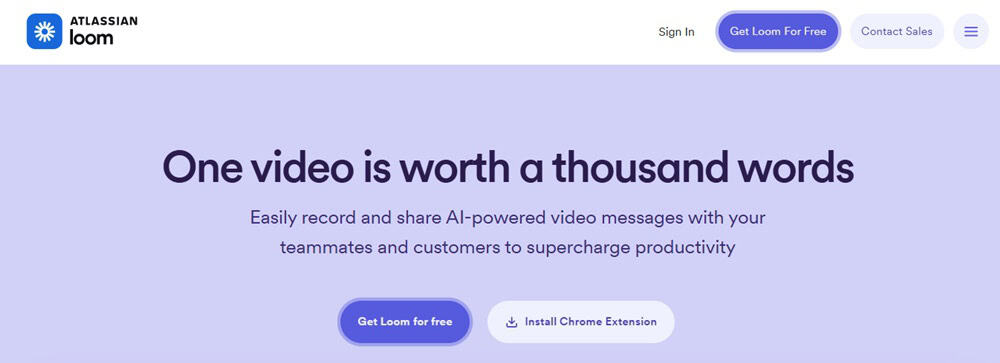
Running affiliate sites is more than just writing posts and dropping links, there’s a whole backend to manage. And for that, Loom has been a total lifesaver.
I use it to record SOPs (Standard Operating Procedures), tutorials, and walkthroughs. Whether I’m training a VA, documenting a process for future me, or breaking down something complicated that I don’t want to explain over and over again.
It’s as simple as hitting record, showing your screen, and talking through what you’re doing.
Loom handles the rest. No fancy editing needed. Just clear, to-the-point videos you can share instantly.
21. Plausible
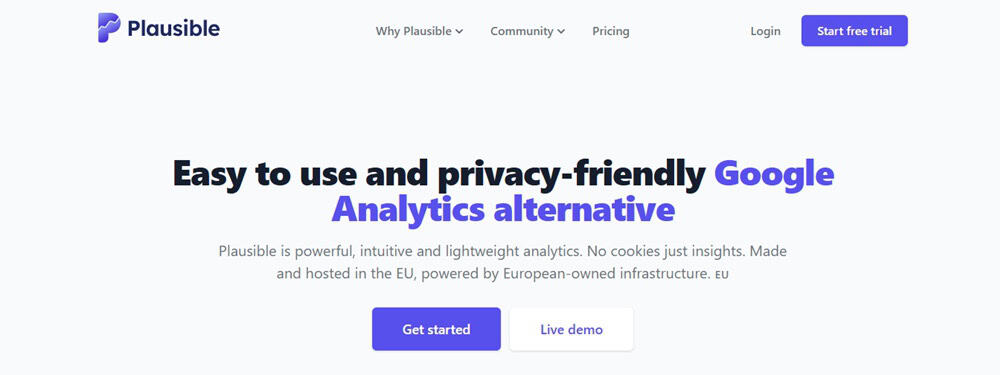
When Google Analytics 4 rolled out and turned everything into a confusing mess of clicks, filters, and hidden menus, I bailed.
That’s when I found Plausible, and I haven’t looked back since.
It’s a clean, privacy-friendly analytics tool that shows me everything I need, all on a single screen. No digging. No deciphering charts. Just real-time data about who’s visiting my site, where they’re coming from, and what they’re doing.
As an affiliate marketer, I don’t need 50 layers of reports. I need clear insights, fast. And Plausible gives me exactly that.
It’s lightweight, easy to install, and doesn’t slow down your site.
If you want to understand your traffic without needing a PhD in analytics, Plausible is 100% worth checking out.
22. Keywords Everywhere
You know those moments when you’re just browsing, Googling something random, and suddenly stumble on a keyword idea?
Keywords Everywhere makes sure you don’t miss those moments.
It’s a browser extension that shows keyword data right inside your search results, including search volume, competition, CPC, and related terms.
No need to open a new tool or spreadsheet. It’s all right there, in context.
I use it constantly to validate keyword ideas, find new angles, and keep my content strategy sharp, even when I’m not “officially” doing research.
It’s not as deep as Ahrefs or SEMrush, but for quick hits and day-to-day SEO awareness? It’s perfect.
23. Google Trends
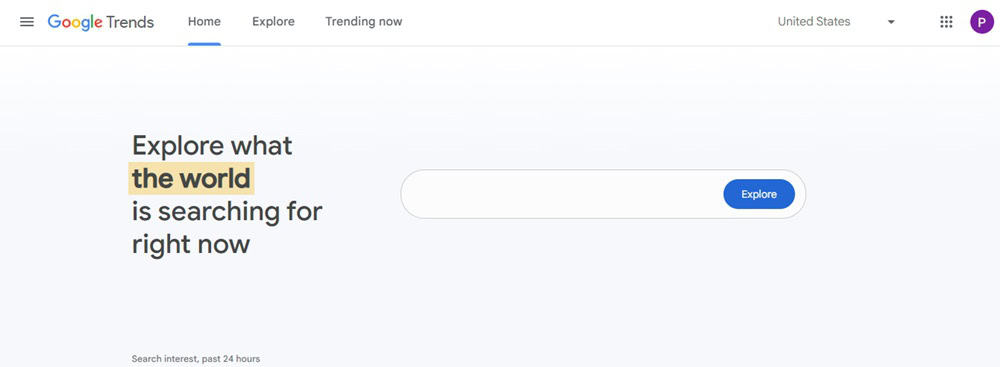
Sometimes, the difference between ranking now or never is timing, and Google Trends helps you get the timing right.
This tool shows you what’s hot, what’s fading, and what’s gaining momentum in your niche.
I use it to validate keywords, spot seasonal patterns, and make sure I’m not wasting time creating content no one’s searching for anymore.
It’s beneficial for affiliate marketing because you want to get in early. Whether it’s a product trend, a new tool, or a rising keyword, Google Trends gives you the data before it becomes evident to everyone else.
It’s free. It’s fast. And it helps you make smarter content decisions that actually drive traffic and clicks.
Final Thoughts on Best Tools for Affiliate Marketers
Affiliate marketing is more than chasing shiny hacks or copying what everyone else is doing.
It’s about building systems that work for you, and the tools you use can either make that easier or a whole lot harder.
I didn’t hit six figures by accident. I tested extensively, failed numerous times, and gradually developed a toolkit that made everything run more smoothly. From content creation to SEO, list-building, automation, and beyond.
You don’t need to use every tool on this list. Start with what makes sense for where you are right now. Add more as you grow. The real win isn’t having every tool, it’s knowing how and why to use them.
So take what fits and skip what doesn’t.
And remember: it’s not the tools that make the affiliate. It’s how you use them.
Frequently Asked Questions
What are the important tools that an affiliate marketer should use?
You’ll want a fast, reliable WordPress theme (like Kadence), a solid SEO plugin (like Rank Math), an email marketing software that doesn’t ban affiliates (GetResponse or AWeber), a way to track clicks and optimize links (Pretty Links, GetLasso, ClickMagick) and tools to keep your content sharp (like Grammarly, Canva, and Google Search Console).
Can I use AI for affiliate marketing?
You can use AI for affiliate marketing, and I do it daily. From writing blog posts and product reviews to generating content ideas and even creating SOPs, AI (especially ChatGPT Pro) has become one of the best tools in my affiliate arsenal. I’ve even built custom GPTs that handle parts of my workflow like a mini team.
What is the best tracking software?
If you like clean dashboards and simple insights, Pretty Links is perfect for bloggers and content creators. But if you’re super detail-oriented (or running paid traffic), ClickMagick is the heavy-hitter.
What is the best affiliate marketing tool for bloggers?
That’s a toss-up between GetLasso and Kadence. GetLasso helps you organize, style, and track your affiliate links like a pro, especially in product roundups and reviews. Kadence gives you a fast, flexible theme that looks amazing and keeps your Core Web Vitals in check.
What is the best website builder for promoting offers?
Honestly? WordPress is still king, especially when paired with a theme like Kadence and tools like Gutenberg or Spectra blocks. It’s fast, flexible, and you can do anything with it. And if you want funnel-style pages, GoHighLevel is also a killer option.
Check out Other Affiliate Marketing Posts:


very good post.
Thank you, Olivia!
Hi Khris Steven,
You have put really hard work on sharing the detailed list of affiliate advertising tools. It will be helpful in starting a new website.
I have read lots of information on the internet related to starting a niche affiliate website and its confuse me lot, I need 1 advice from your end, Do I start with buying a new domain or Should I look at expired domain and start blogging?
Please share your valuable thoughts or if you have any articled published on your website please share so i can look at it.
Thank you
Vijaybhabhor
Hey Vijay, Here is a free training on building an affiliate marketing authority site from scratch. Hope that helps.
If you’d like to see other methods to drive traffic, then my guide on promoting ClickFunnels would give you tons of ideas.